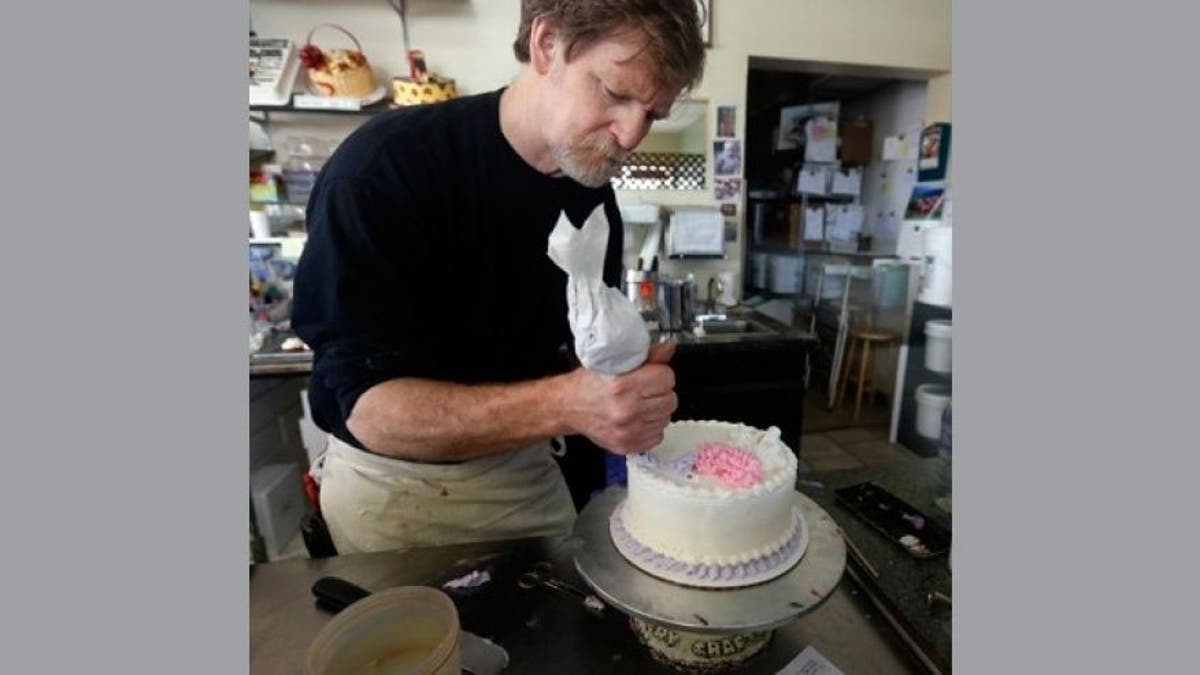
(Alliance Defending Freedom)
On Monday, the U.S. Supreme Court ruled in favor of cake artist Jack Phillips, saying the Colorado Civil Rights Commission unjustly punished him when it ordered Jack to create a custom wedding cake celebrating a same-sex wedding. As the court said, “[t]he neutral and respectful consideration to which Phillips was entitled was compromised here …. The Civil Rights Commission’s treatment of his case has some elements of a clear and impermissible hostility toward the sincere religious beliefs that motivated his objection.”
By now, many Americans have heard of Colorado’s Jack Phillips; of his family business, Masterpiece Cakeshop; and of his decision not to design that custom wedding cake.
But some do not know the whole story. Jack has never refused to serve any person based on who they are or what they look like. Everyone is welcome in his shop—even the two men who sued him. In fact, he told those men that, even though he couldn’t create a custom cake to celebrate a same-sex marriage, he would be happy to sell them anything else in his shop or design a cake for them for a different occasion.
Over the years, Jack has declined to create many custom cakes because of the messages they express. If you’re looking for a ghoulish Halloween cake, a boozy bachelorette-themed dessert, or a cake celebrating a divorce—Masterpiece Cakeshop isn’t your place.
That’s because Jack has heart, convictions, and faith—in addition to talents. He isn’t a well-programmed robot but a human who believes things about God, about marriage, and about the world. Jack isn’t confrontational about his beliefs, but he wants to use his talents to convey messages or celebrate events that he thinks are good, beautiful, and true.
The Supreme Court drew a line in the sand and protected the religious freedom of people like Jack. It said that religious hostility has no place in a diverse society like ours, whether the government is regulating art or anything else.
And that leads to an important point: While skill and heart are essential for all real art, it’s not true that all works involving creativity qualify as constitutionally protected expression. For that, the item must communicate a message. That’s surely true of Jack’s wedding cakes, each of which is carefully sketched, designed, and hand-crafted to announce the couple’s union as a marriage and tell part of their story.
Yet if the Colorado Civil Rights Commission had its way, Jack’s voice would have been silenced; his hands would have been tied. After the commission’s decision, Jack was forced to give up designing the wedding cakes that he loves to create and lost 40 percent of his business and over half his employees.
You can disagree with Jack’s decision or his convictions but still see the problem here: Artistic expression comes from the mind, the heart, and the soul. It is fueled by conviction and passion. The very concept of government-mandated art is itself a contradiction. As Leonardo da Vinci said, “Where the spirit does not work with the hand, there is no art.”
One ACLU lawyer has argued that “the issue here isn’t access to wedding cakes. It’s the freedom to be a full participant in civic and economic life.” That’s exactly right. The men who sued Jack got their cake and their wedding. They participated in civic life and didn’t need Jack to be part of their celebration.
But if the commission’s order stood, Jack’s freedom to create based on his convictions would have been stripped away, his business decimated, and his beliefs banished from public life. The Supreme Court saw no justice in that. Those who believe that marriage is the union of a man and a woman shouldn’t be ostracized, banished from society simply because of what they believe.
When Jack puts on his apron, he shouldn’t lose his voice. When he opens his business, he shouldn’t lose his freedom. Batter, frosting, and fondant, in the hands of a skilled artist, do tell stories—they do express messages.
On Monday, the Supreme Court drew a line in the sand and protected the religious freedom of people like Jack. It said that religious hostility has no place in a diverse society like ours, whether the government is regulating art or anything else. It’s a significant victory. For freedom.








































